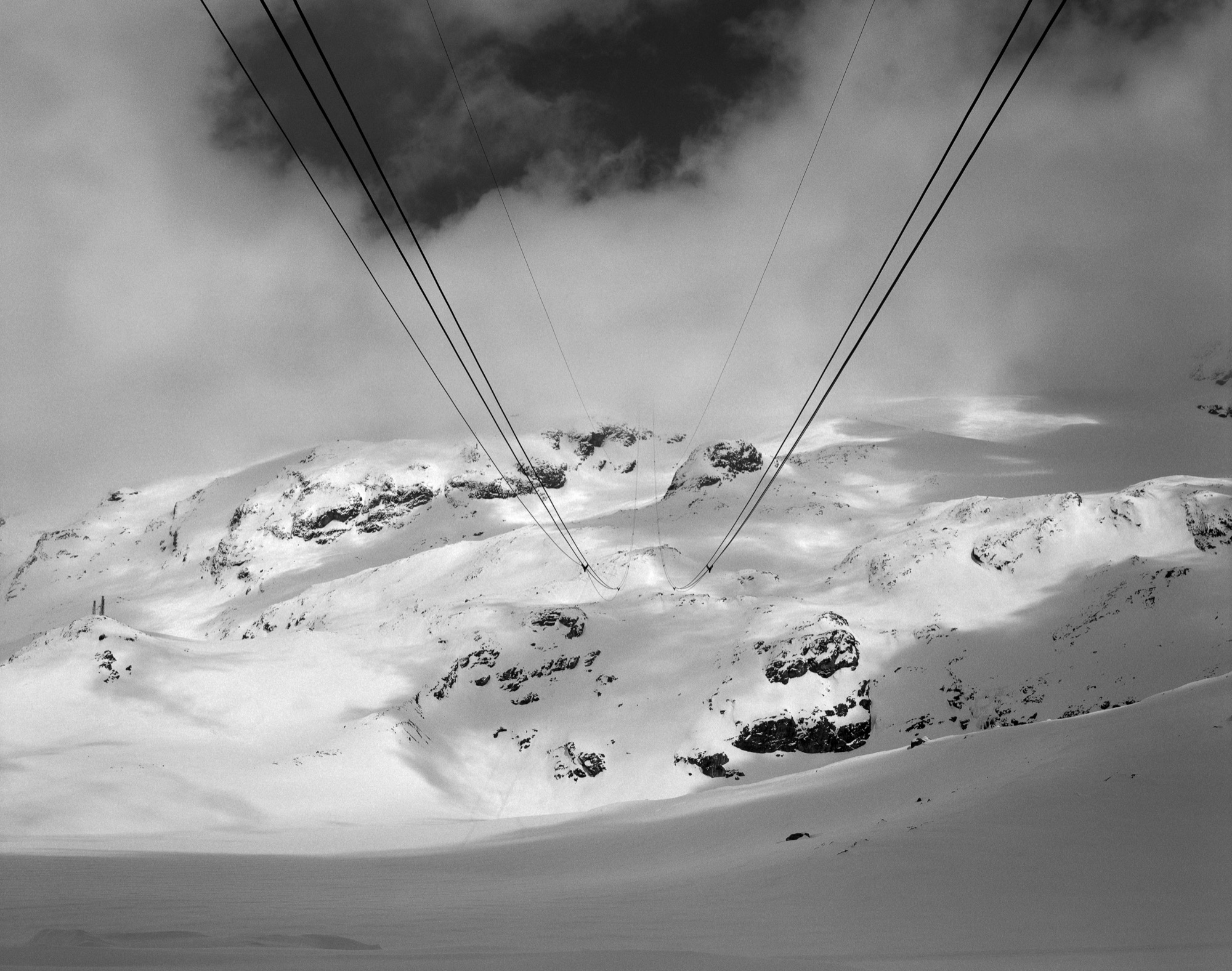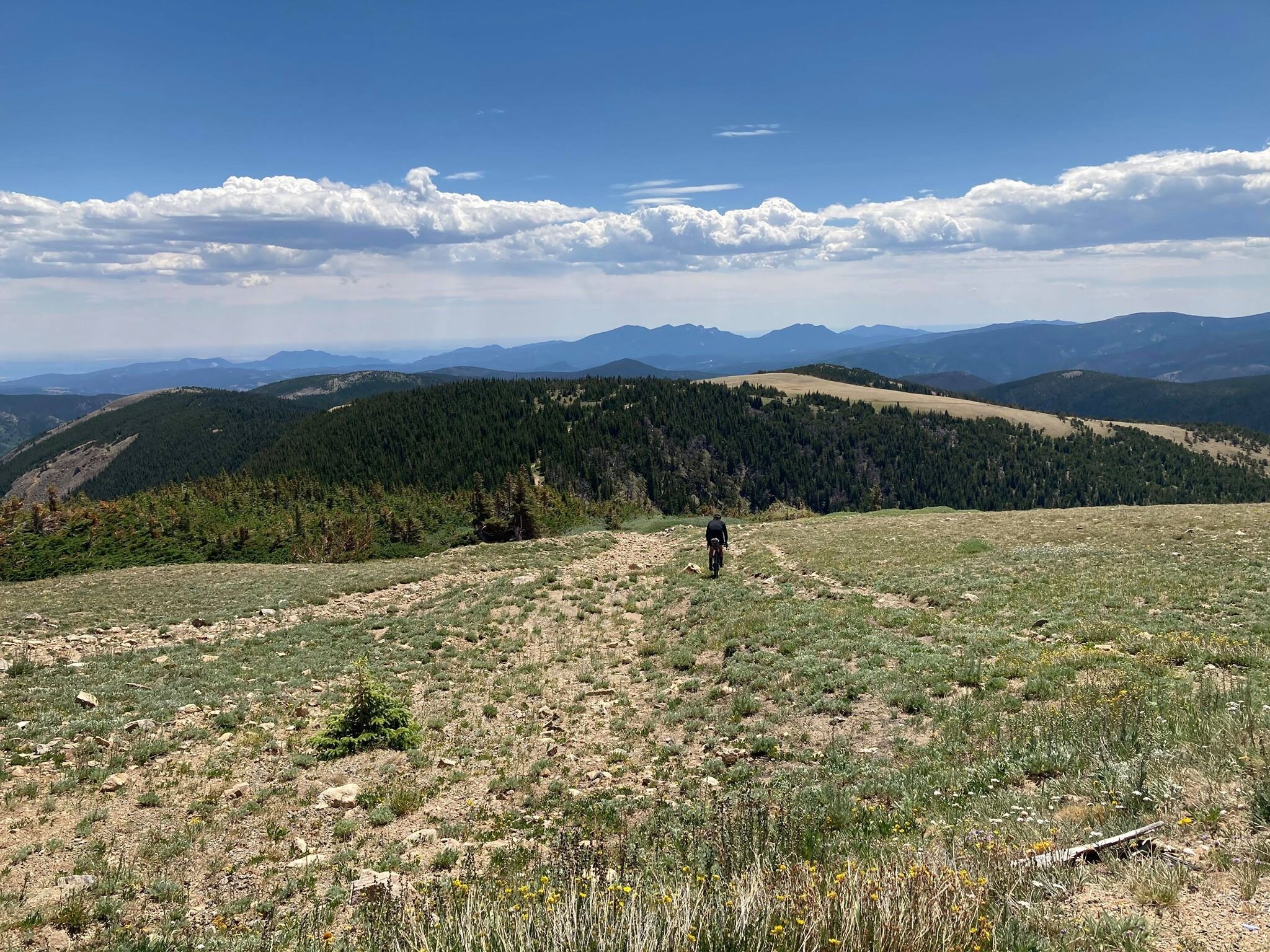
Inspirations
Explore the elevated life in the mountains. This content debuted in 2015 with Alpine Modern’s printed quarterly magazine project.
Waking Up to Adventure
Zack Giffin, professional freeskier and cohost of the television series Tiny House Nation, builds himself a mobile 112-square-foot (10-square-meter) ski-in, ski-out chalet so winsome it wipes out the ski bum stigma.
Zack Giffin, professional freeskier and cohost of the television series Tiny House Nation, builds himself a mobile 112-square-foot (10-square-meter) ski-in, ski-out chalet so winsome it wipes out the ski bum stigma.
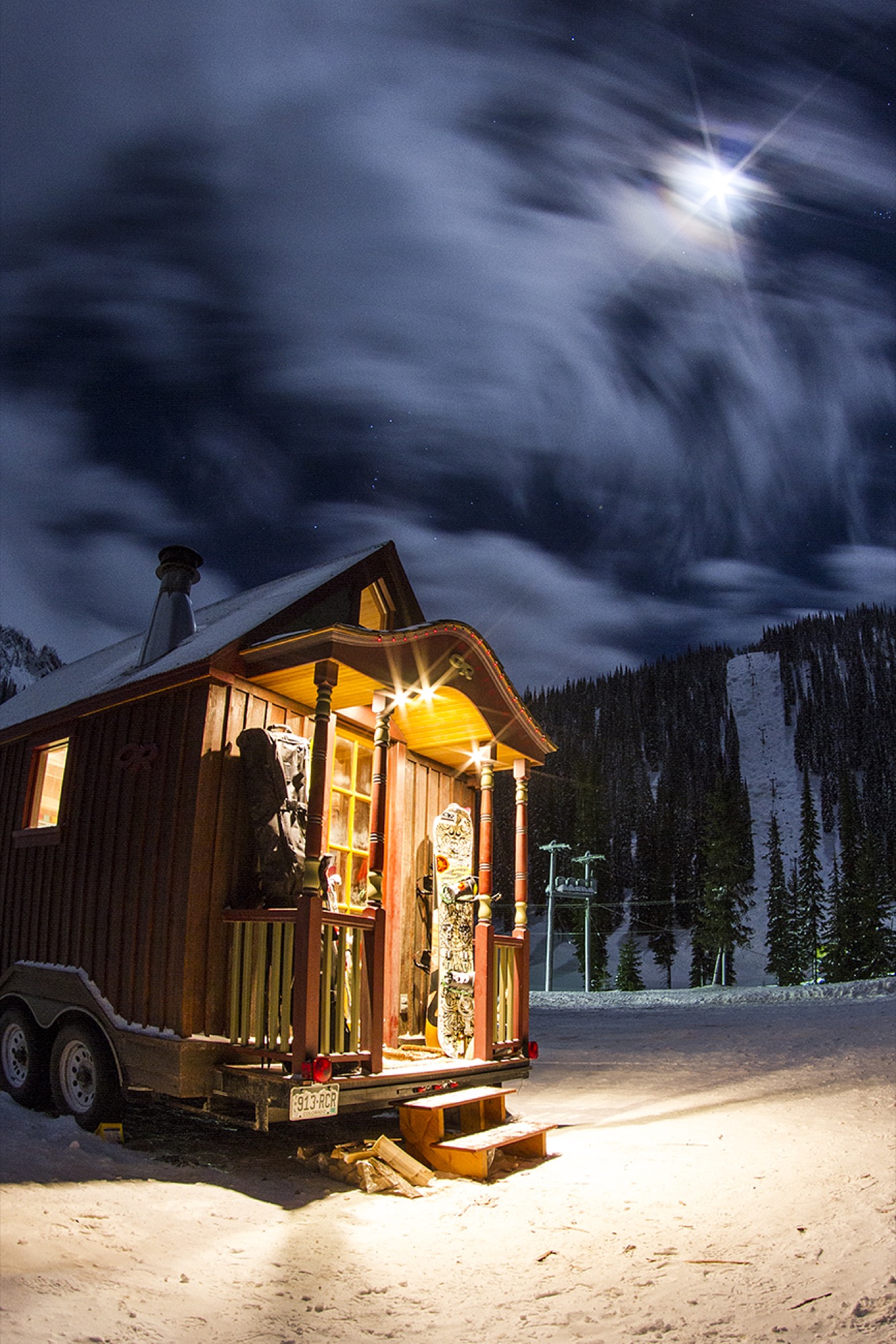
“My love for the mountains comes from my family. My whole identity was to be that mountain kid,” Zack Giffin says about growing up in Gold Hill, Colorado. His parents had moved to the tiny mountain community ten miles above Boulder to raise their three sons (Zack is the middle child) to revere the outdoors as much as they did. His mother, a university professor, was an avid backpacker. His father, a ceramics artist and prolific inventor, was a fisherman and a rock climber.
The parents’ plan worked. Giffin blossomed into a professional skier, hungry for adventure and romantic evenings in the mountains.
Young Giffin embraced another passion of his father’s: working with wood. Like Giffin Senior, Zack is not a carpenter by trade. Nevertheless, “My dad instilled in me that you can make things yourself, and that you are the only one you can really rely on.”
That paternal sagacity resonates with Giffin whether he builds tiny houses or is about to drop down the face of a glacier. “The development in both those areas is in learning how to believe in yourself, to trust you’re making the right call.” He’s had mentors on the snow and in the shop, but he, like everyone, came to a point when there was no one to reference. “When you are on your own, that’s when a lot of growing up happens.”
“My dad instilled in me that you can make things yourself, and that you are the only one you can really rely on.”

Alone
The tragedy that changed Giffin’s life in an instant happened neither on the big mountain nor on television. It happened in the home he shared with a roommate in Boulder. It forever altered what home meant to him. “I had a gnarly incident with a friend,” Giffin reveals, his voice suddenly somber. The young man who had been like a little brother to Giffin, accidentally shot himself to death. “It was pretty dramatic. I was in the house, and all of a sudden I no longer felt the security of home in that space.”
He no longer wanted to live there. “It was this catalyst in my life for making a change. There was sadness, and I really wanted to pursue my dream of being a skier.” All at once grasping life’s preciousness, Giffin bought an RV and persuaded his little brother to move to Mount Baker, Washington—a place he was “absolutely in love with” at the time. “That was a big shift, and I experienced a lot of stigmatism.” He’s talking about being perceived as “the guy who lives in an RV.” No soul asked him about his motivation to uproot and chase his dream. The following winter, Giffin pushed himself yet nearer the fringe of venal bourgeoisie. He moved into a van that he outfitted with a wood stove.
Boyfriend material
Then, he fell in love with fellow snow gypsy Molly Baker, who is also a professional skier. “She was so cool and totally would have done it, but I had experienced that stigma and couldn’t bring her into that world with a good conscience,” he admits. “No girl wants to go back to her parents and explain that her new boyfriend actually lives in a van.”
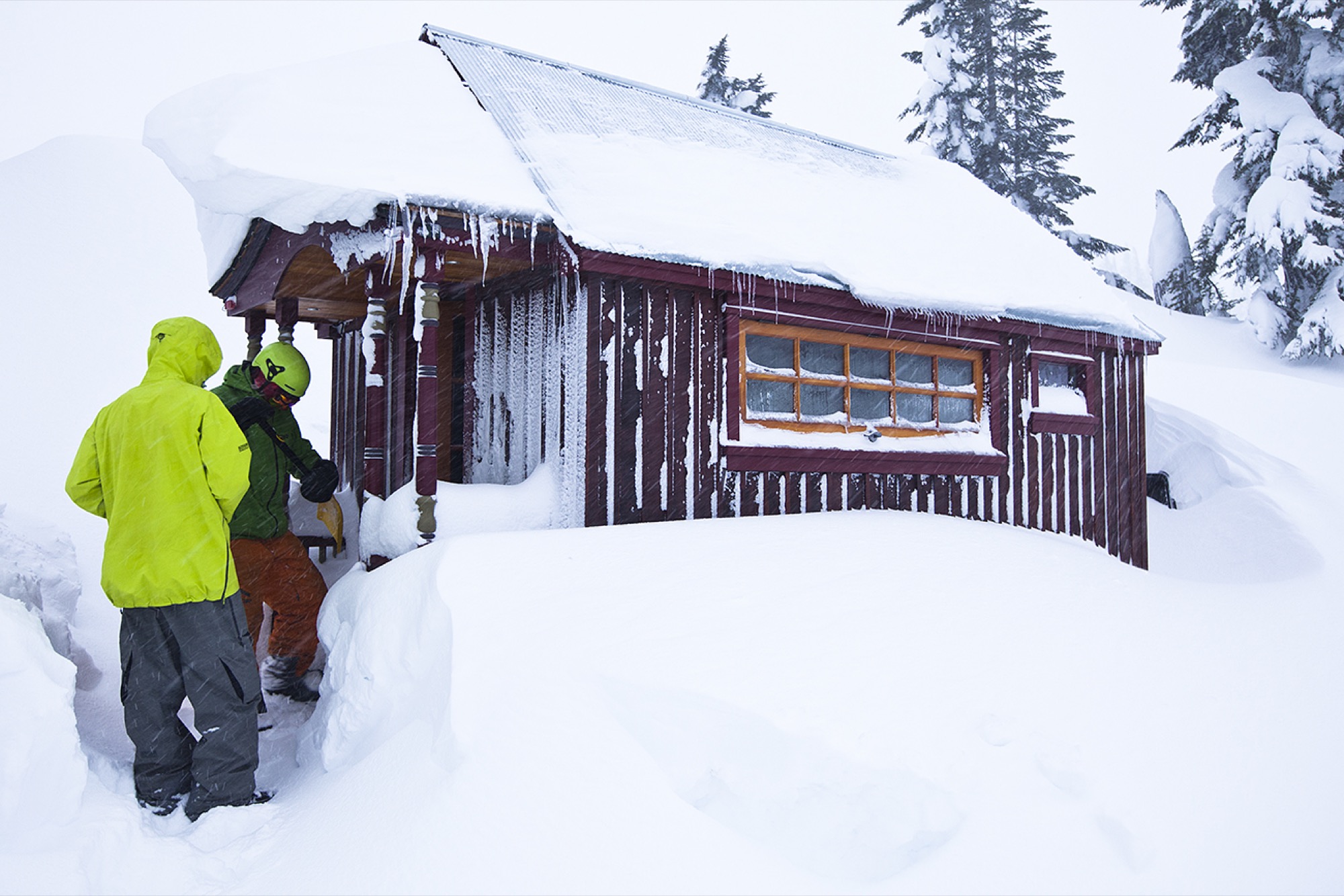
So he built a 112-square-foot (10-square-meter) tiny house on wheels for Baker and himself. It became more than a vehicle to keep living expenses low. Giffin once again owned a place he wanted to come home to and could take pride in. “It’s human nature. It’s a disorienting feeling to be out there, floating around, and not have this idea of where home is,” he says. “With a tiny house, you can provide that for yourself with a lot less money and without this ridiculous classist stigma.”
Looking back on how differently people reacted to his RV or van compared with the tiny house, Giffin is astounded. “I would park my RV at a friend’s, and the neighbor would come over within a day, asking me how long it’s going to be there,” he remembers. “Now, the neighbors still come over. But now they want a tour. They want to meet the person who’s built such a cool thing.”
“No girl wants to go back to her parents and explain that her new boyfriend actually lives in a van.”
Returning time, restoring pride
Keen on helping others feel that sense of pride, Giffin, in his mid-thirties, now builds tiny houses all across the country on his television show Tiny House Nation. The movement hits a nerve with the nation. Along with irrepressible concerns about the environment and the economy, Giffin senses a growing disdain for global materialism, amplified in increasing average home sizes. Living minimally speaks to all those fears. “I see that pendulum swinging back in the tiny house movement.”
He passionately wants to help people get out of the trap of imbalanced wages versus home prices. “So many people in my generation are going through school and have all these dreams and passions, and then economic reality forces them into jobs that have nothing to do with what they studied,” he says. “As time goes on, that turns into their reality, and hopes get left behind.”
Leaving behind material things and abundant living space instead of dreams, on the other hand, has one tremendous reward: returned time. “I love to watch people make that transition, because it’s not just about the physical detachment from the things that were controlling your life, it’s also this big decision that takes a lot of courage. And you can be so proud of yourself for making it through to the other side.”
Free-skier
Freedom from being forced to work longer hours to afford a bigger house is one important appeal of tiny-house living. The other one is mobility. When Giffin is not filming, he pulls his ski chalet on wheels right up to the mountain. “The desire to wake up where your next adventure is, this immediacy, is a universal understanding within the ski culture,” he says. “With skiing, half of the process is the commute. Only unbelievably rich people get to stay right at the mountain.”
Or, you’re living in the parking lot.
“The desire to wake up where your next adventure is, this immediacy, is a universal understanding within the ski culture.”
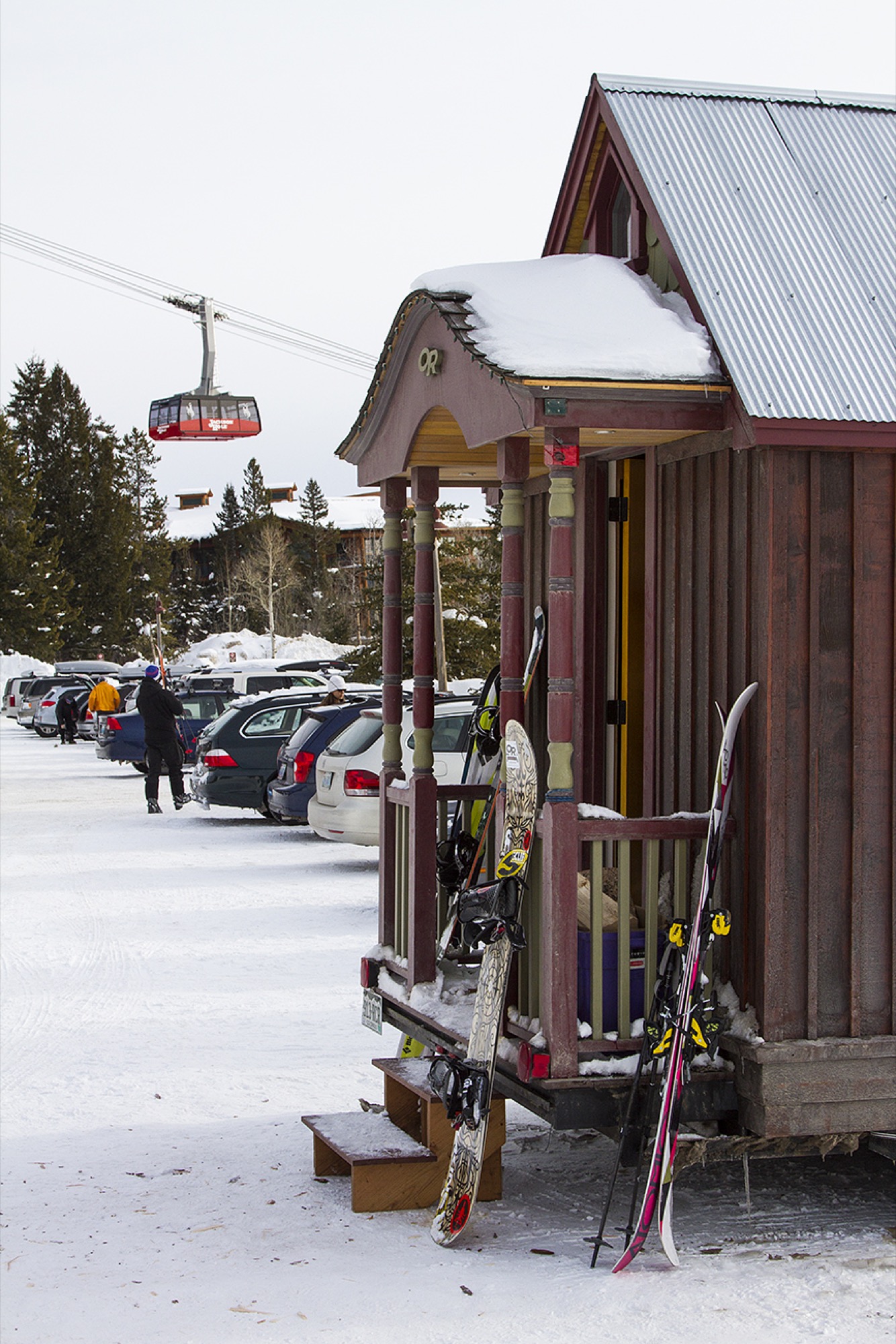
Giffin values being on the mountain before anyone else, and, at the end of the day, not being stuck in traffic, sitting in the car in his wet gear. Instead, he skis right up to the place he calls home. “One of the most beautiful things about tiny-house living are these incredibly romantic situations. You’re collecting all these little tidbits of extra time. It’s the end of a beautiful ski day, and it’s such a satisfying feeling to be in a place you love, that feels like home, and that’s in the mountains. But you have to fill that time or you are going to experience this crazy thing called boredom. And that’s just beautiful. It turns into my time for reading books, stretching, playing guitar, and having intense conversations with Molly . . . or a dance party. All these things lead into a quality of life worth living for.” △
“One of the most beautiful things about tiny-house living are these incredibly romantic situations. You’re collecting all these little tidbits of extra time.”
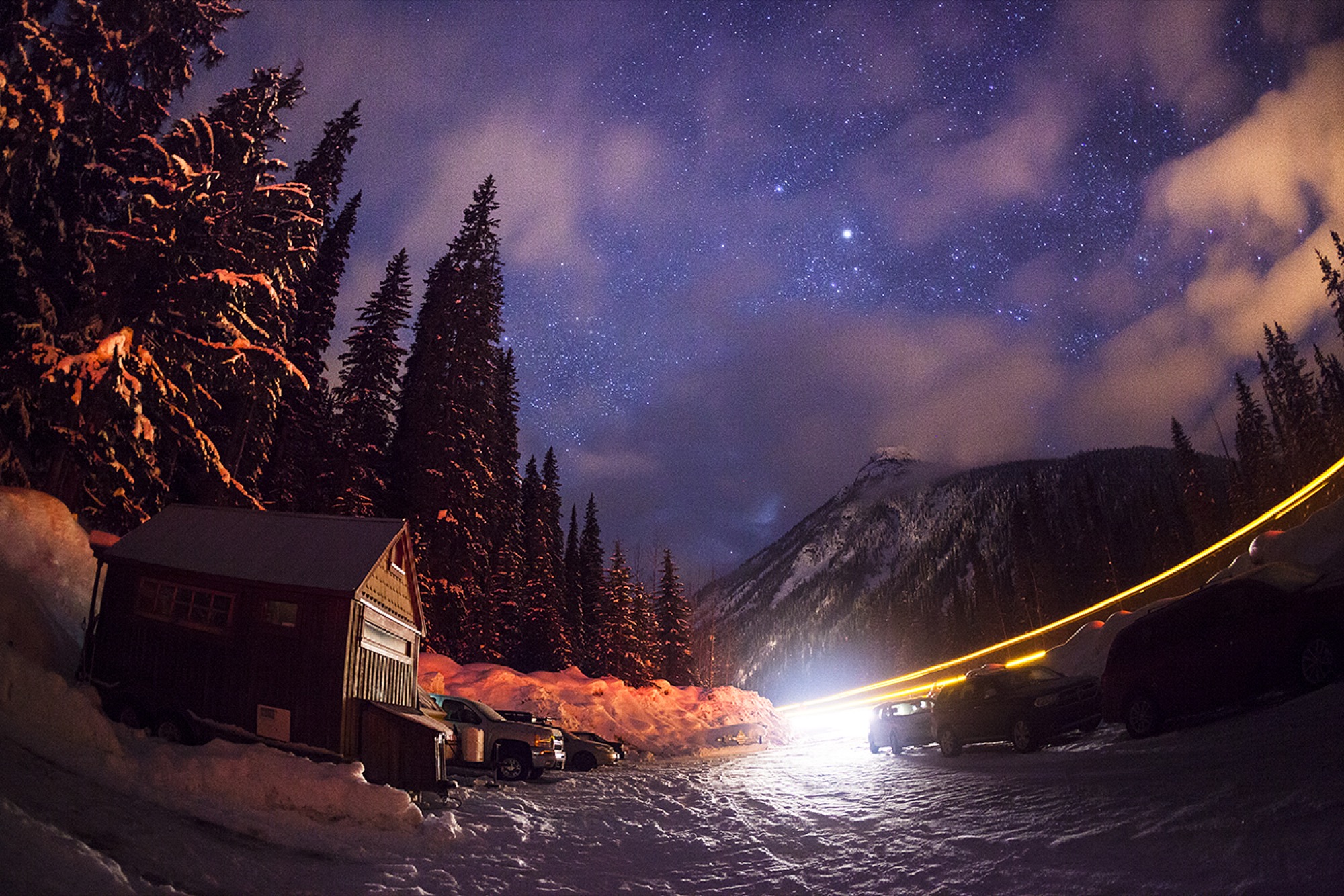
This story was originally published in winter 2014/15, in our printed Alpine Modern quarterly.
Crystallize
Temperatures in Boulder are dipping deep below freezing. There is a poem for that.
With shimmering deadliness,Delicate sharpness, Paradoxical strength,
Flexible and adaptable, give way, Fray into a panorama of mosaic lines, Or stand on one’s own accord.
Do not hide: refract and reflect, Intensify that which one magnifies, All seeing.
Be ice, be strong in fragility, be pierced and reformed.
Resilient, frozen, Susceptible to the seasons, thaw, reform, and crystallize, Be clear, clarifying.
Allow yourself to be at the mercy of natural cycles, Grow something bright in a season of death.
Silent, Speak only in the drip of the sun. △
Alps // 40
An unfiltered, low-speed journey across Swiss peaks in words and images by Boulder photographer Jamie Kripke
Slowing down gives us more time to look. Having more time to look changes how we see. I wanted to slow down.
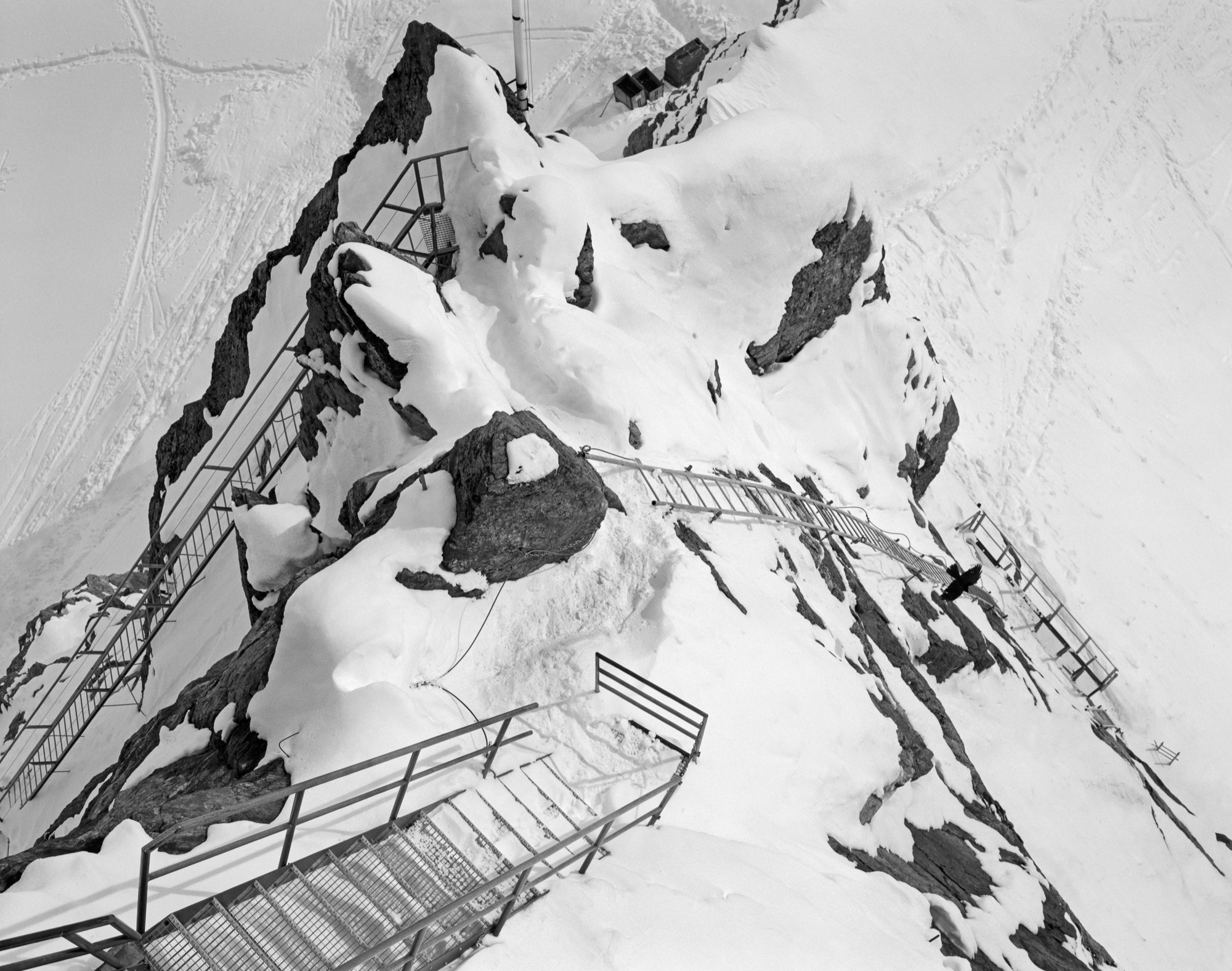
Using alpine touring skis, a small backpack, a folding medium-format camera, and twelve rolls of black-and-white film with ten exposures per roll, I set out to traverse and photograph a high route across the Alps. Each piece of equipment for this trip was chosen for its simplicity as well as its limitations—and for the extra time, attention, and patience it requires.
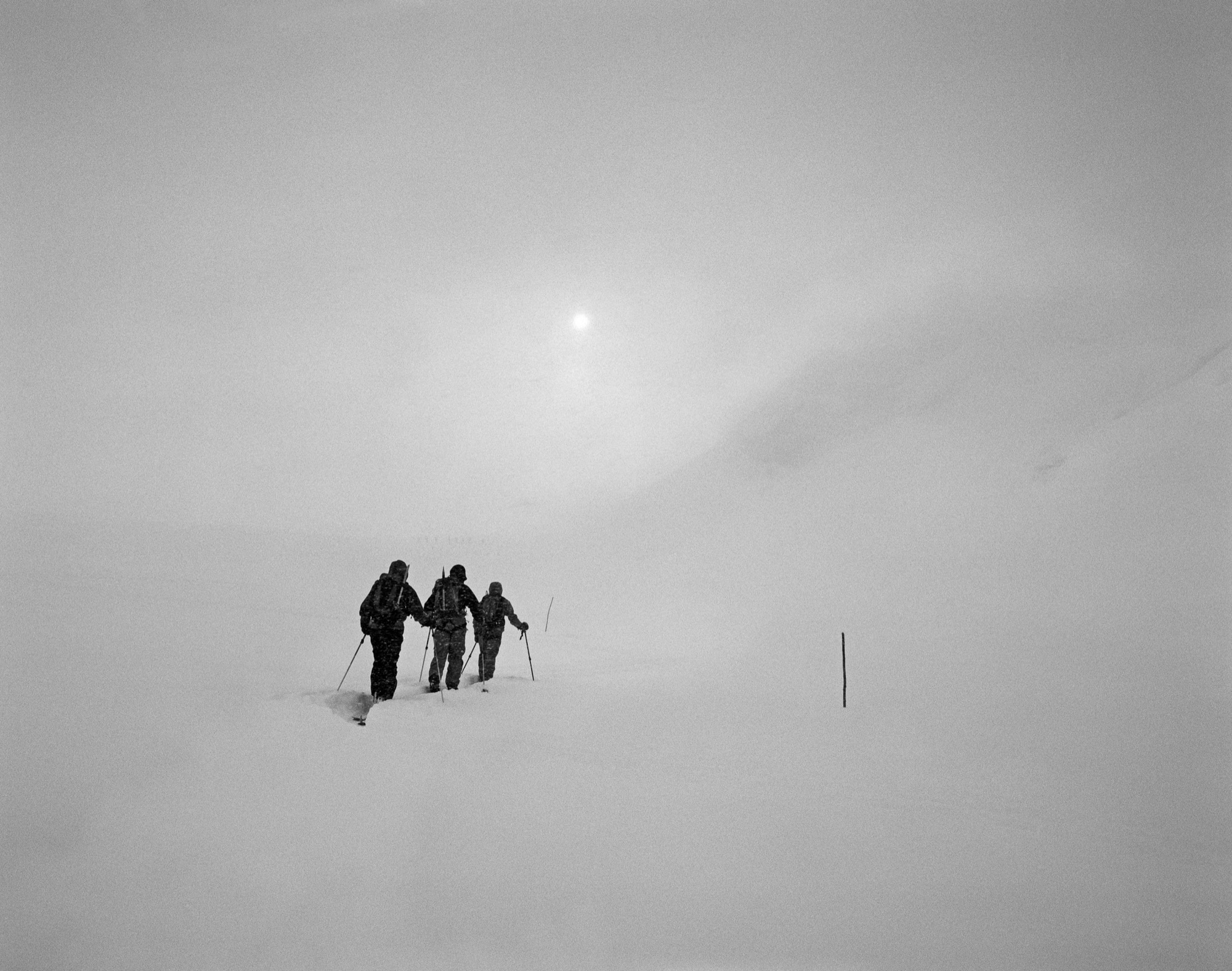
Traveling up and over mountains by skis has a way of shifting time away from something that is measured in minutes, hours, and days. Ascending one step at a time through untracked snow, the units become ski lengths, pole plants, breaths, sips of water, bites of food, daydreams, changes in weather or light.

The physical limitations of low-speed film in a mechanical camera call for a heightened attention to composition, exposure, and technique. Every frame becomes its own unique experience—one that builds gradually with each precise movement of the camera, each small adjustment for focus, aperture, or shutter speed.
"Every frame becomes its own unique experience."
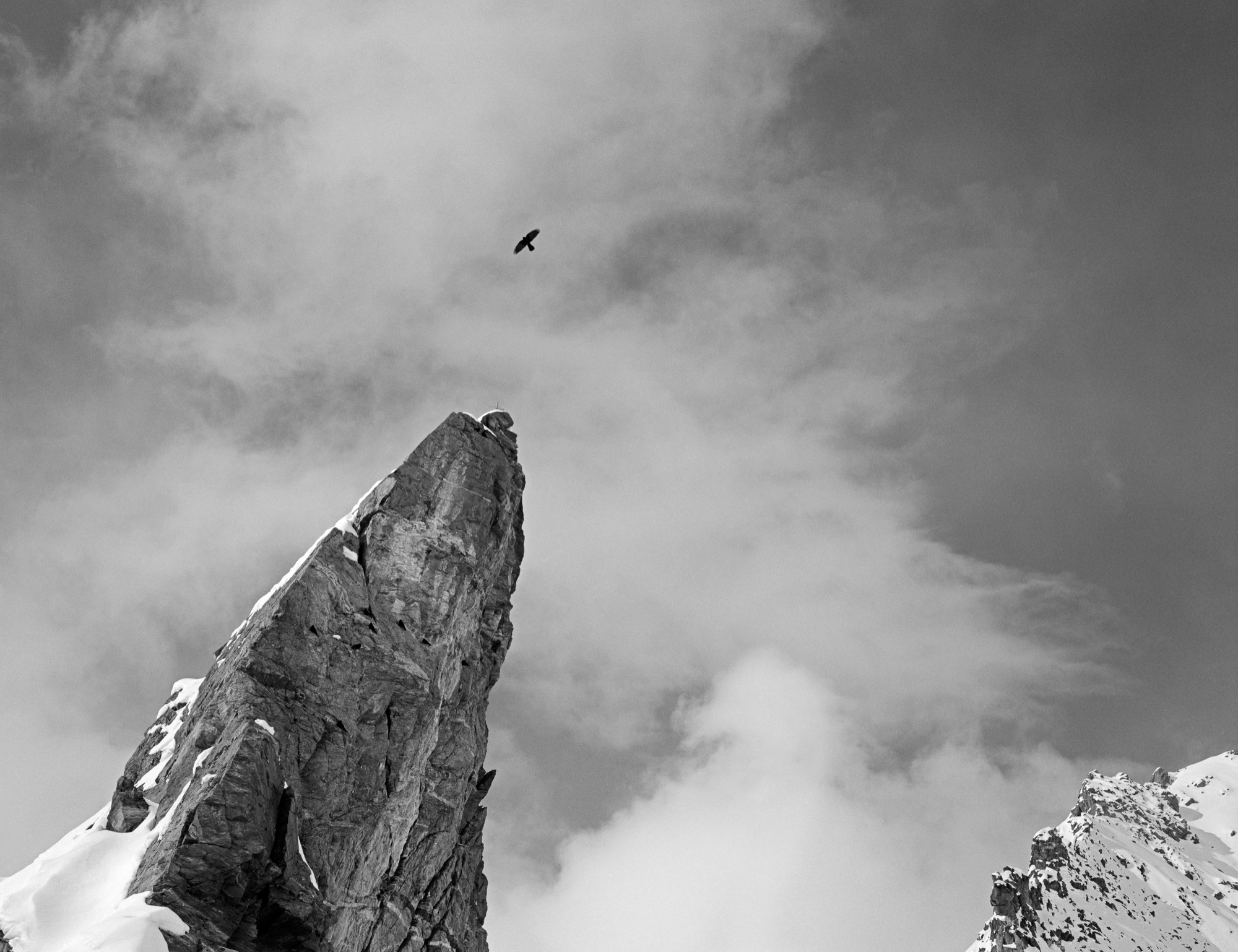
Once I’ve settled on an image, I take a deep breath and try to be as still as possible. High in the Swiss Alps, in the space between the breath and the click of the shutter, time slows to a stop.
"High in the Swiss Alps, in the space between the breath and the click of the shutter, time slows to a stop."
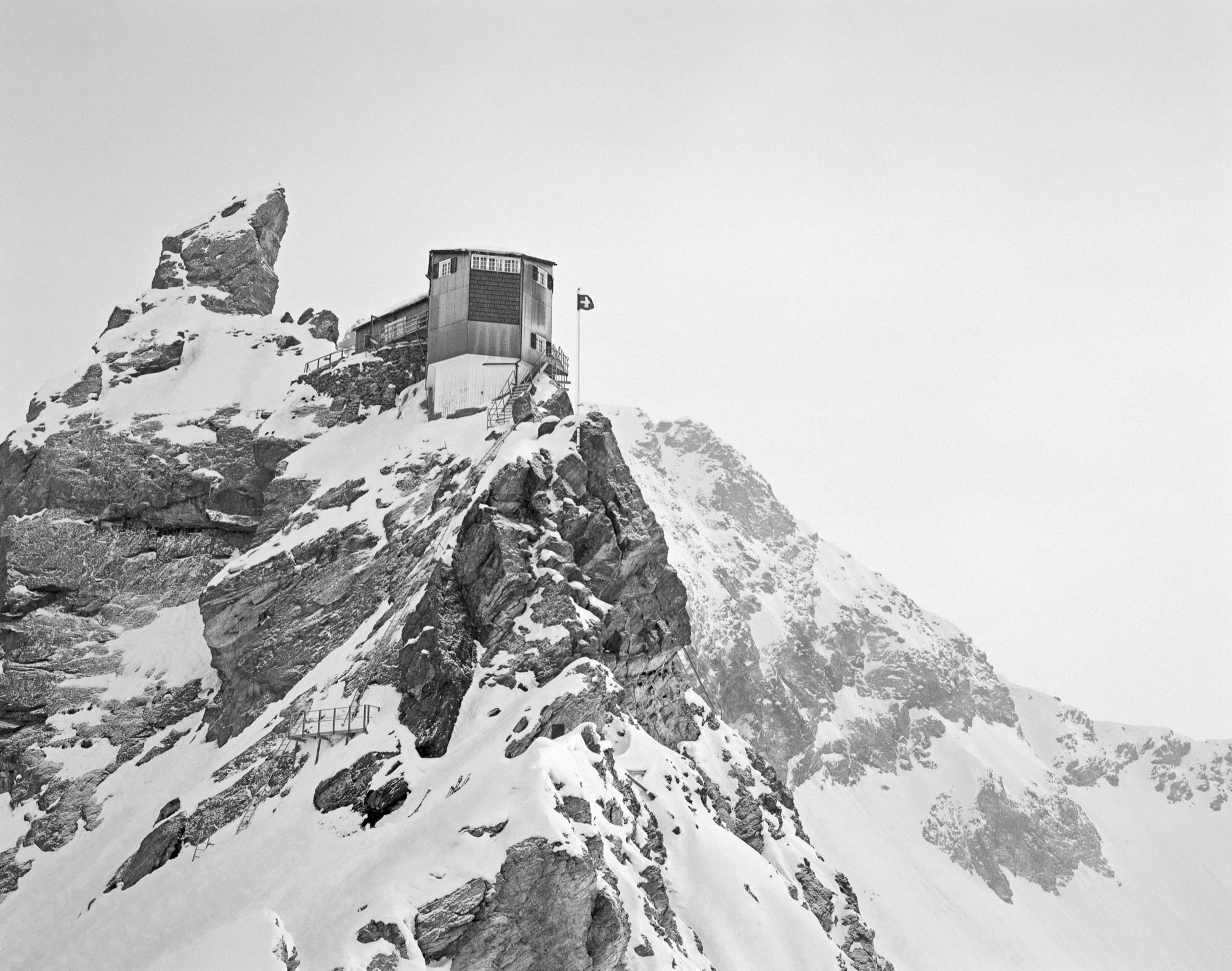
These images were made over the course of eight days, and selected from a total of 120 images, where just one exposure was allowed for each image. They have been minimally altered from their original form in order to stay true to the tonality of the film, and are the pure, unfiltered, timeless compositions that I’d been looking for. △
